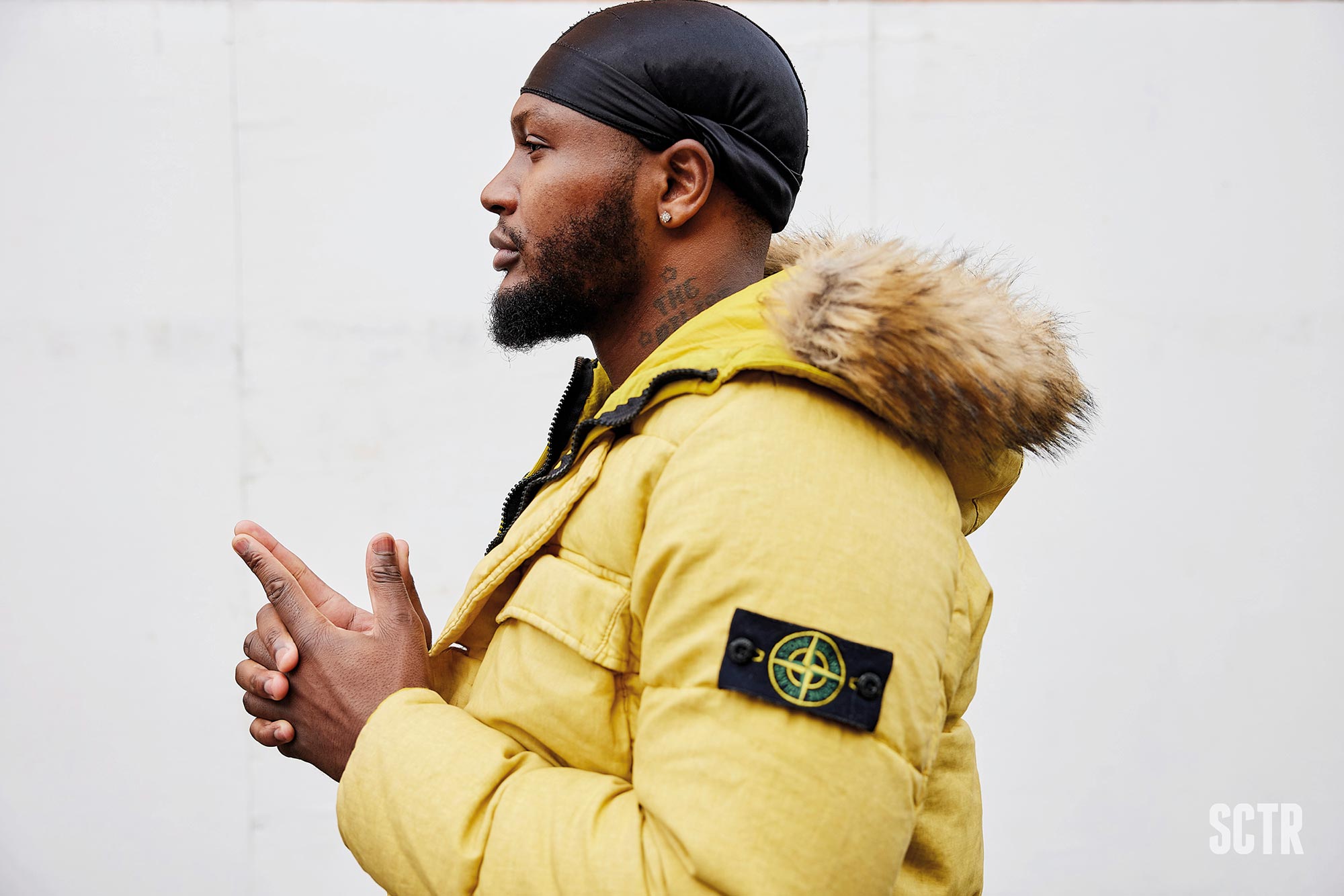CLTR
SCTR x Viddal Riley
SCTR headed back to his roots with Viddal Riley, spending the day in Tottenham: N17.
Viddal Riley: a born boxer.
Photographer Hamish Brown
/ /Writer Jack Figg
/ /Video Director Dan John
/ /Stylist Phoebe Butterworth
/ /Creative Director Keith Waterfield
The current unbeaten English cruiserweight champion first walked into the iconic Repton gym as a six-year-old boy.
But he was already learning to box from the age of two thanks to his dad Derrick, a former amateur who trained at the same gym as Nigel Benn and still coaches his son to this day.
“That’s where the journey started,” Riley says.
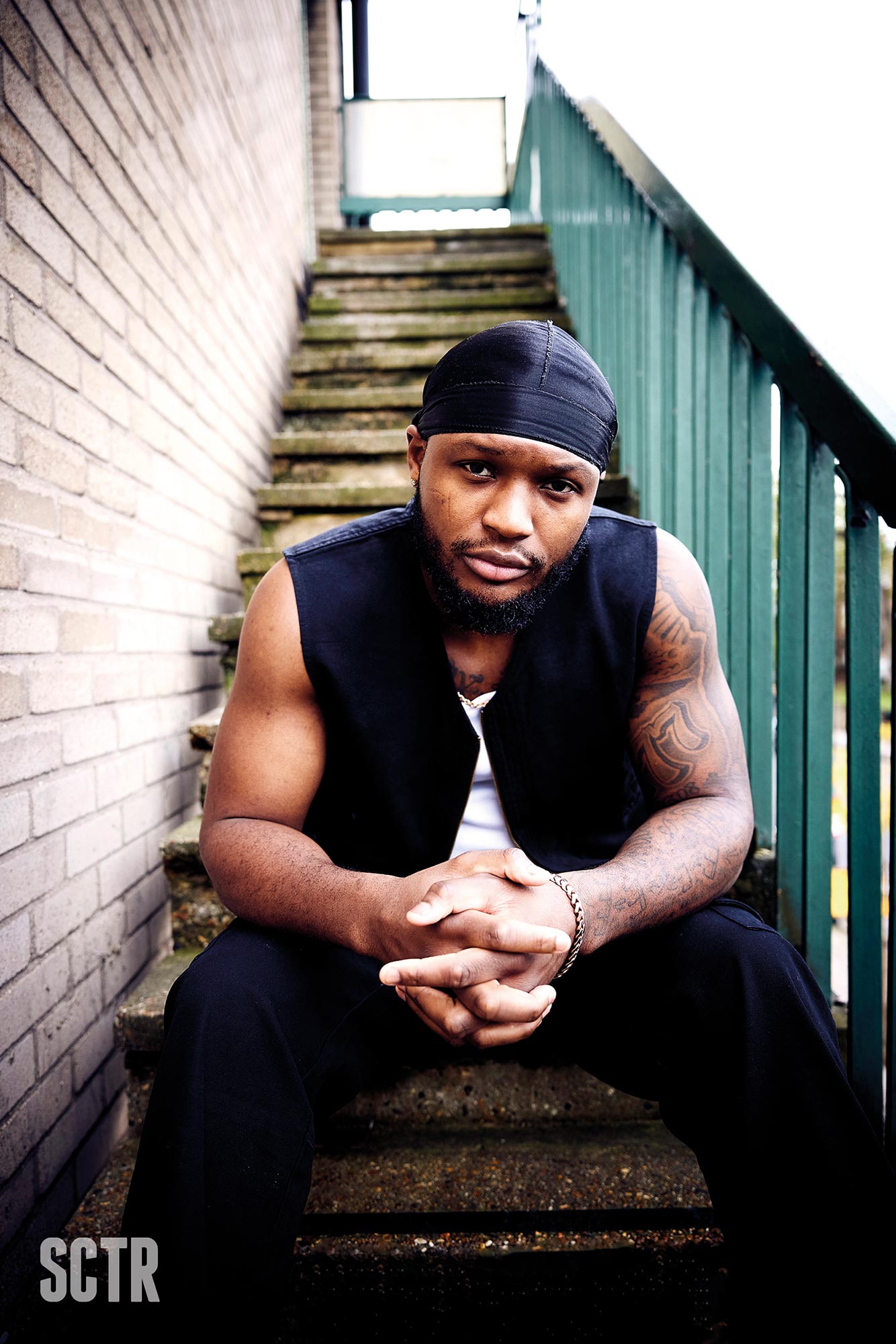
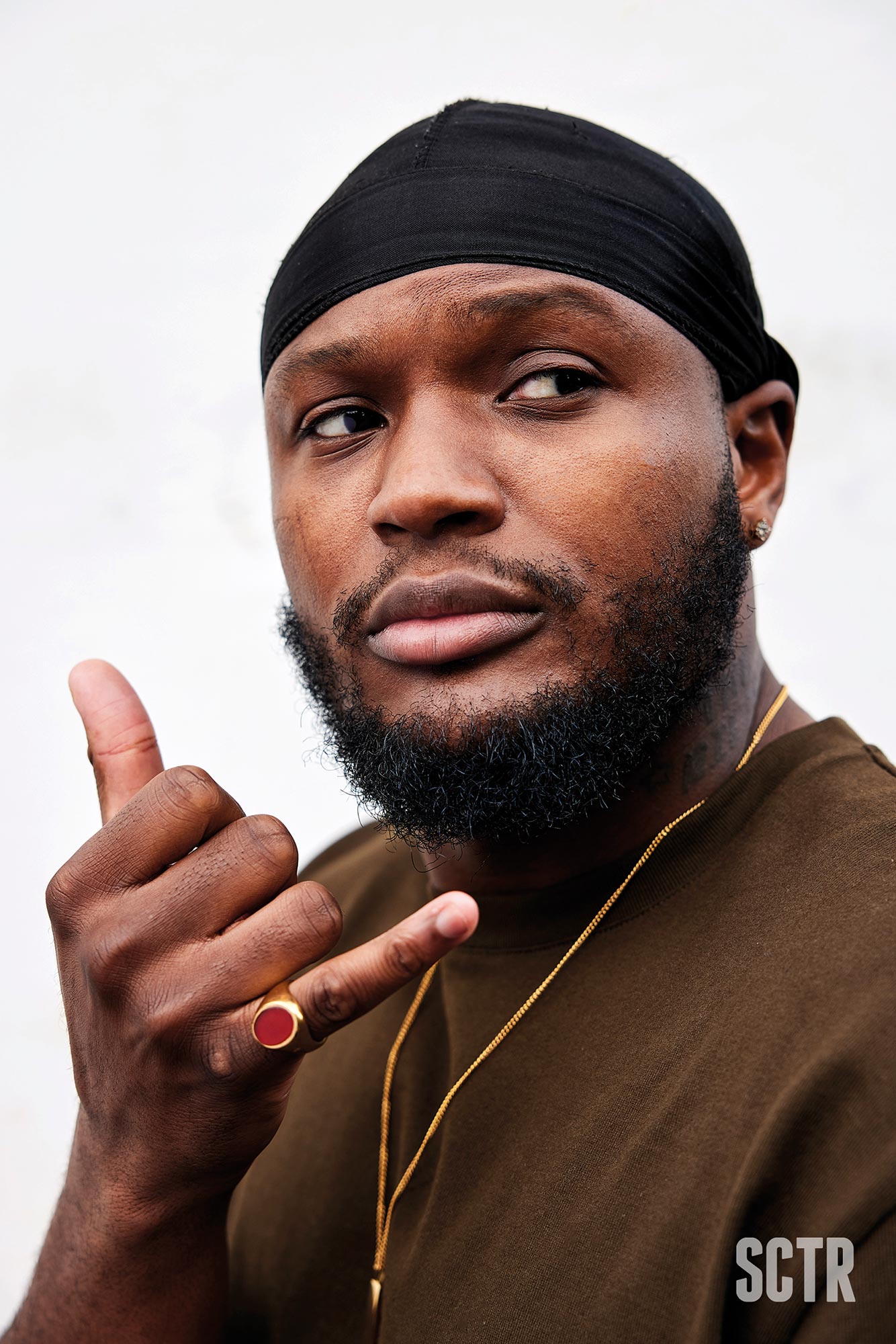
Vest and trousers by SCRT
T-shirt by Arket
“They knew what was waiting on the other side wasn’t best for me so I always give my parents credit for getting me to where I am today.”
“From six years old going down the gym, sparring with the boys, sparring with some champions down there and getting the better of quite a few of them, doing better than I should for my age.”
Riley, born in Hackney but raised in Tottenham, had his first amateur bout aged ten and by 12, he was a national champion.
But during his early teenage years, he was left fighting to find the passion for the sport he had done his whole life.
And he credits his parents for helping him rediscover that love and refusing to let his talent go to waste.
“It’s a combination of my dad and my mother,” he reveals.
“My mum isn’t a boxing expert, she’s not going to tell me the best jab to throw but when it comes to my life direction and where I’m heading, the right and wrong thing to do, she was as influential as my dad.
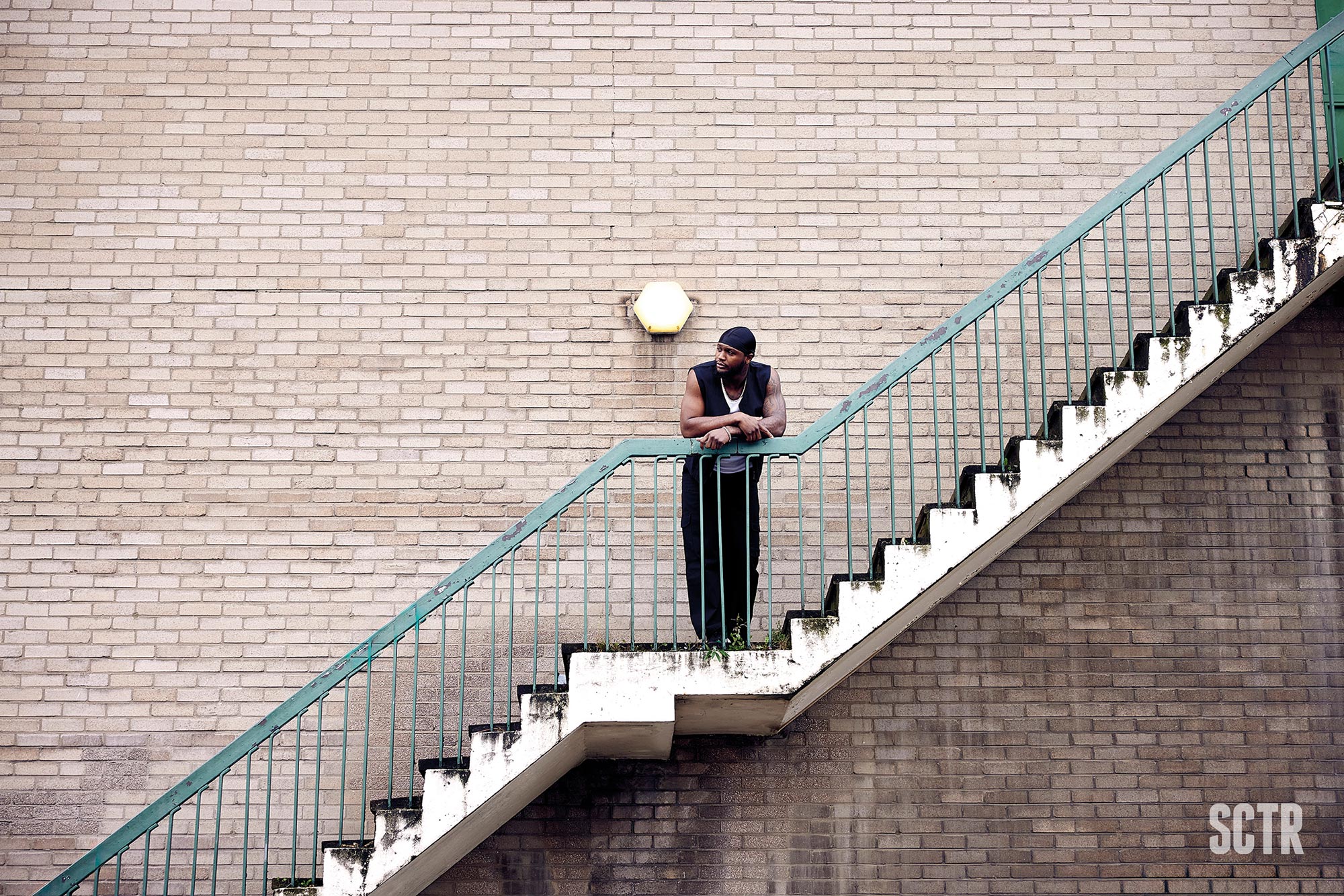
Vest and trousers by SCRT
“There were definitely a lot of times I was training away from the straight and narrow and trying to do my own thing but I always give a ton of credit to my parents for being stubborn and resilient in their approach.
“They knew what was waiting on the other side wasn’t best for me so I always give my parents credit for getting me to where I am today.”
It was his parents strict outlook that also helped keep Viddal in the boxing gym and out the troublesome North London streets.
“Growing up in Tottenham was eventful, I’ll say that,” he admits.
“My parents were very strict so it was a game of me working my way around how strict they were, because they were diligent and they’d try to make sure they kept as much control as possible because that is what is required in that environment.
“There’s a lot of things going on whether it’s people getting into trouble, certain areas or places you can’t go to because you know there’s trouble there.
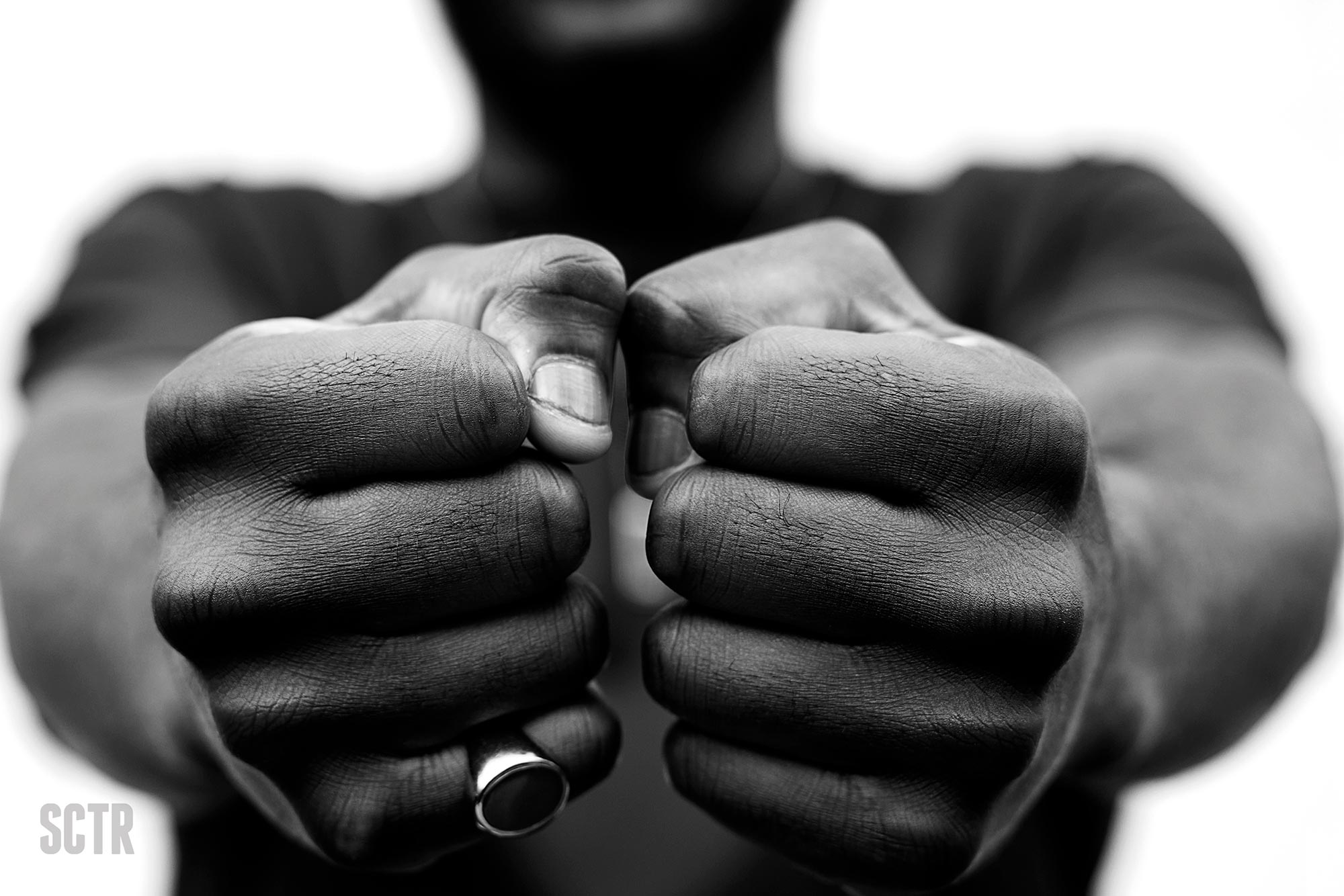
T-shirt by Arket
“Growing up in Tottenham was eventful, I’ll say that,"
“There’s a lot going on and if you’re outside too much you’re going to get caught up in the badness of it.”
Riley admits had it not been for boxing he would “definitely be in some trouble now.”
“If boxing wasn’t there what would have been the thing that filled the gap?” He added.
“The thing that installed the discipline to make the right decision?
“Because I don’t have the answers to that I have to say boxing gave me a structure and a road to head. The ethics and the morals of what it takes to become a boxer is transferable.
“Those things are contained in me through boxing and my upbringing.”
Riley knew by the age of 14 that he wanted to be a professional boxer and nothing else.
And he dreamed of qualifying for the 2020 Tokyo Olympics but defeat in the 2017 national championships all but KO’d his chances.
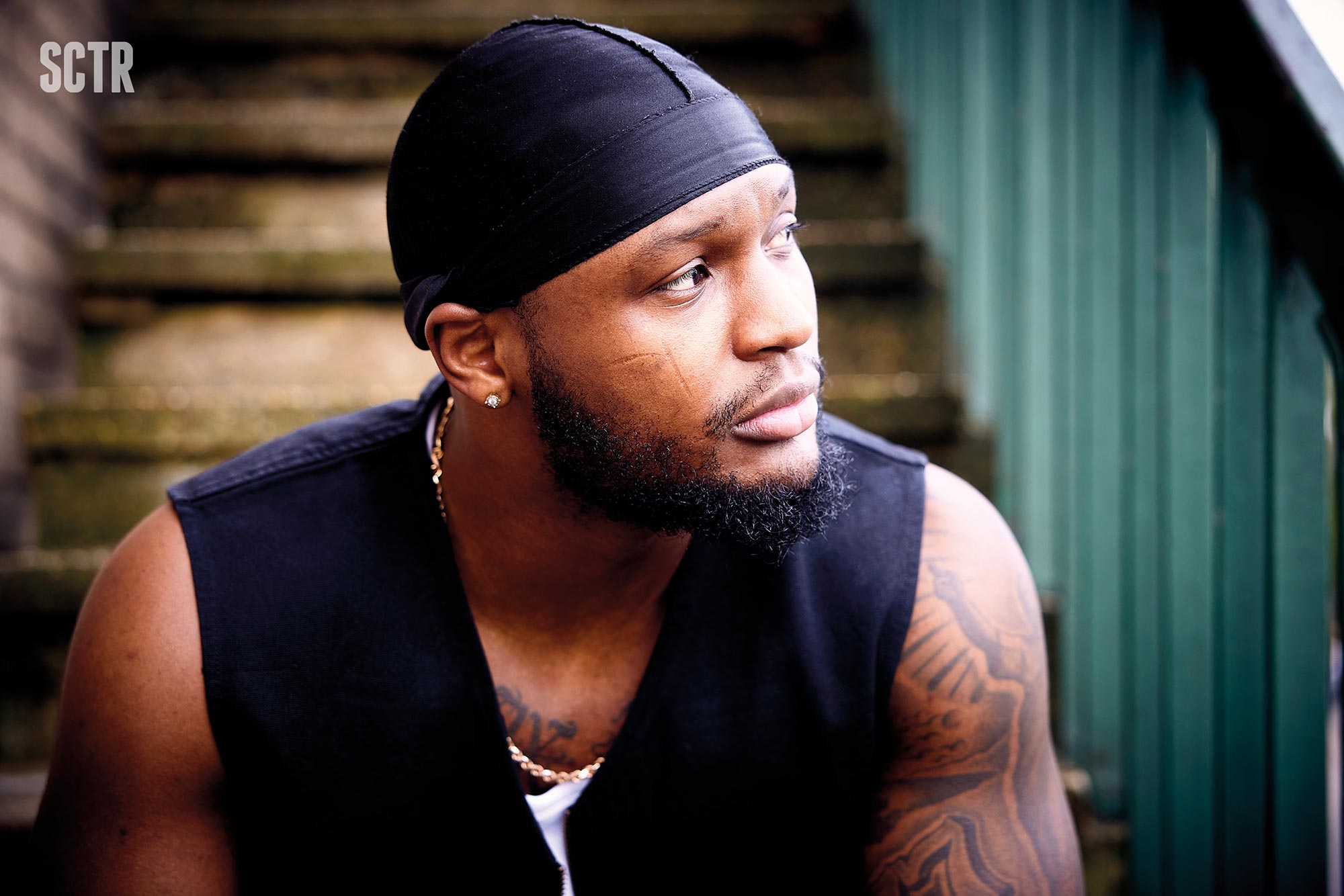
Vest and trousers by SCRT
"boxing gave me a structure and a road to head. The ethics and the morals of what it takes to become a boxer is transferable"
During the same period, Riley’s life and career took an unexpected turn when he became the boxing coach to YouTube superstar KSI, training him for three fights.
As a result, Riley found himself sparring in Floyd Mayweather’s famous Las Vegas boxing club and it caught the attention of the American legend.
So when Mayweather offered Riley the chance to drop his Olympic aspirations to turn pro in the States, the young prospect had a decision to make.
“I just thought, ‘This opportunity doesn’t come around for everyone,’” Riley remembers.
“There were no guarantees in competing in the tournament next year but what was being offered to me was this opportunity to turn professional in America under the Mayweather banner.
“Not a lot of people were getting offered contracts to turn to America and fight under Mayweather Promotions. I was 20 and I said, ‘You know what? Let’s do it.’”
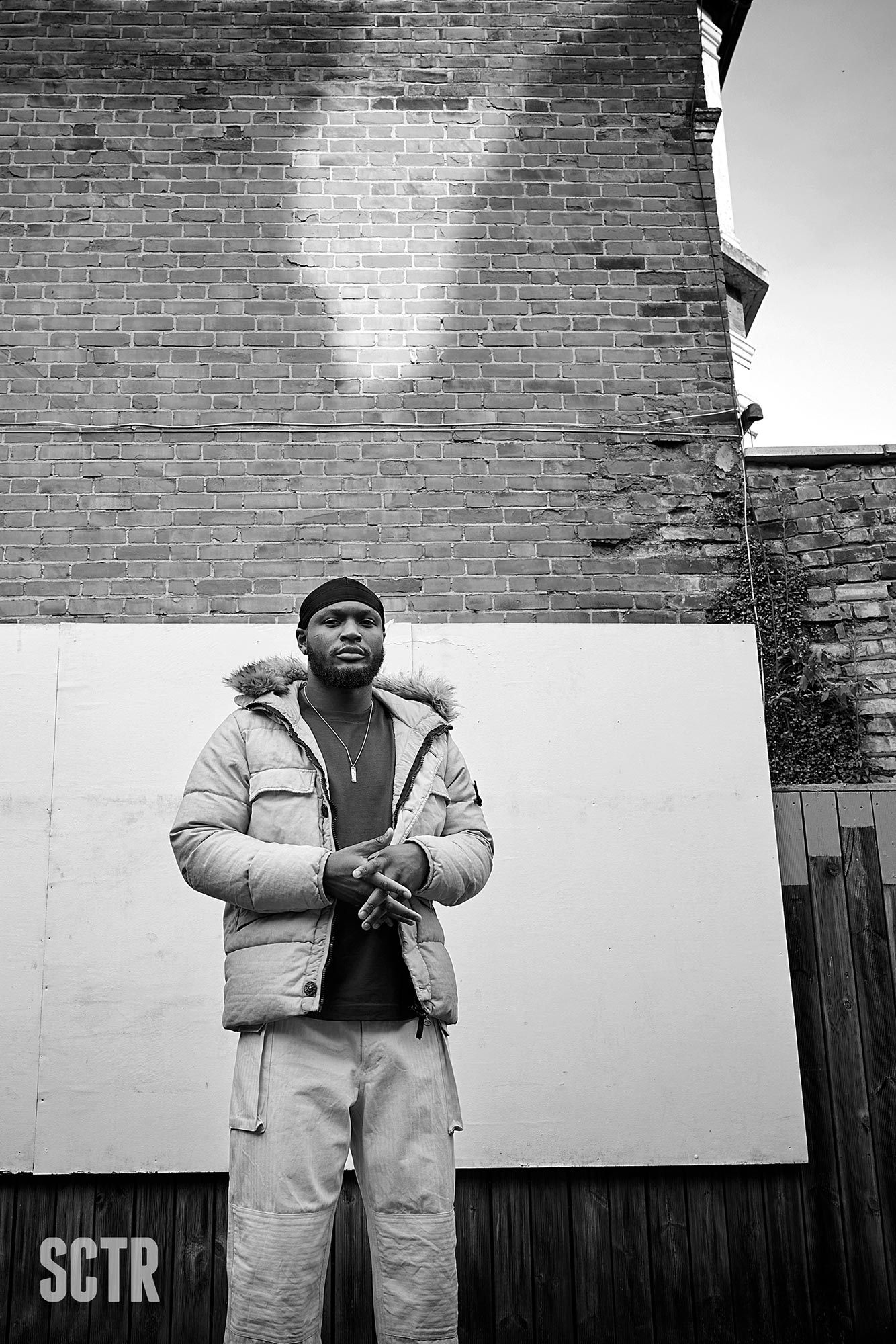
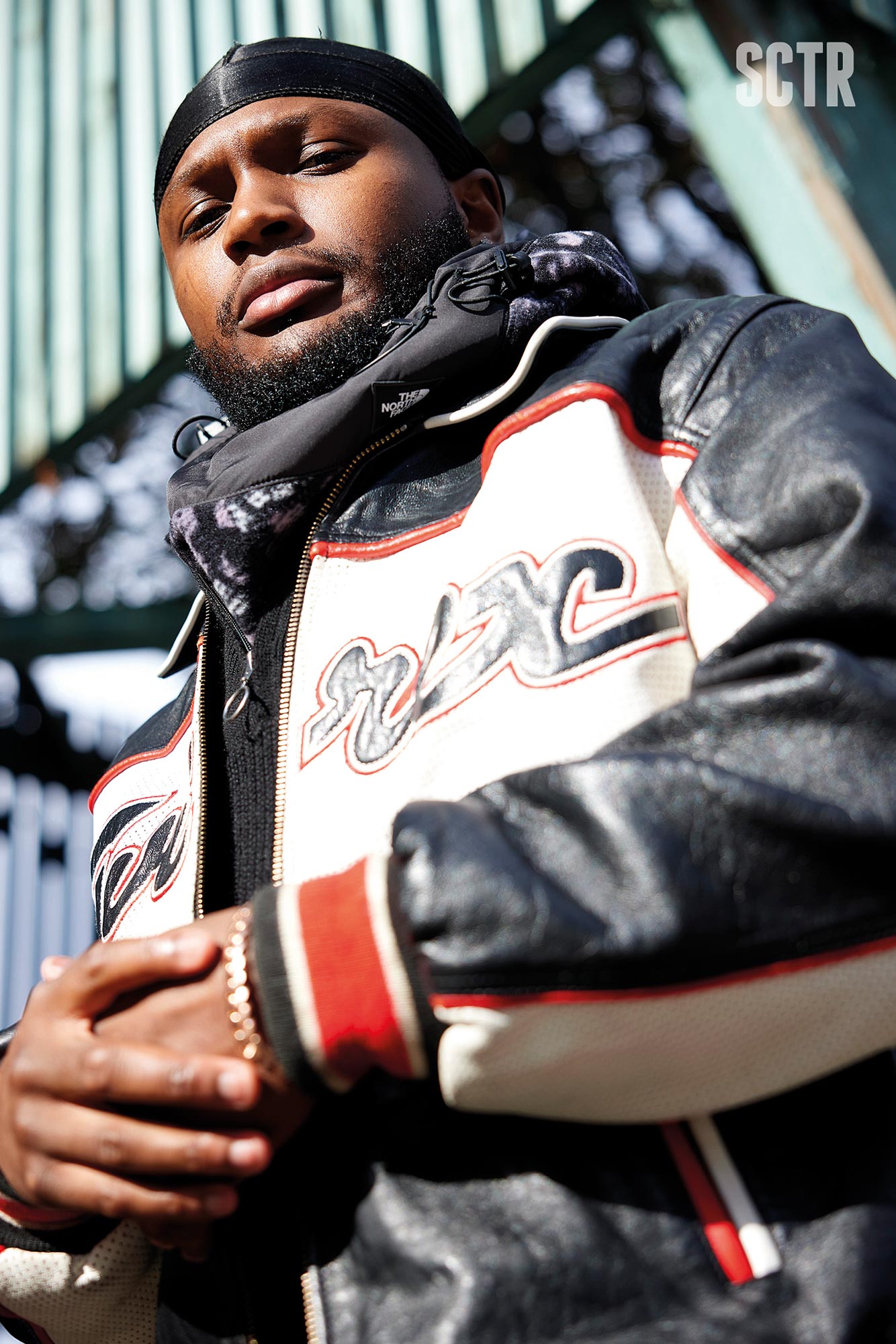
Jacket by Stone Island at Garmasutra
Jacket by Avirex Jumper by Edwin Hood by Northface
Riley had four bouts under the Mayweathers and garnered mainstream fame due to his affiliation with KSI.
But he made the decision to stop coaching his famous friend to instead focus on his own fledgling boxing career.
“It definitely got to a point where I was thinking how am I really going to become this boxer that I say I want to be if I’m not dedicated the time to it,” Riley says.
“It was very hard to dedicate the time to coaching and then of course dedicate the time to my own career and my own journey.
“It was hard to envision that fighter while coaching at the same time. That’s why I let it go. I didn’t have to because of the success I was having and how much my brand was growing.
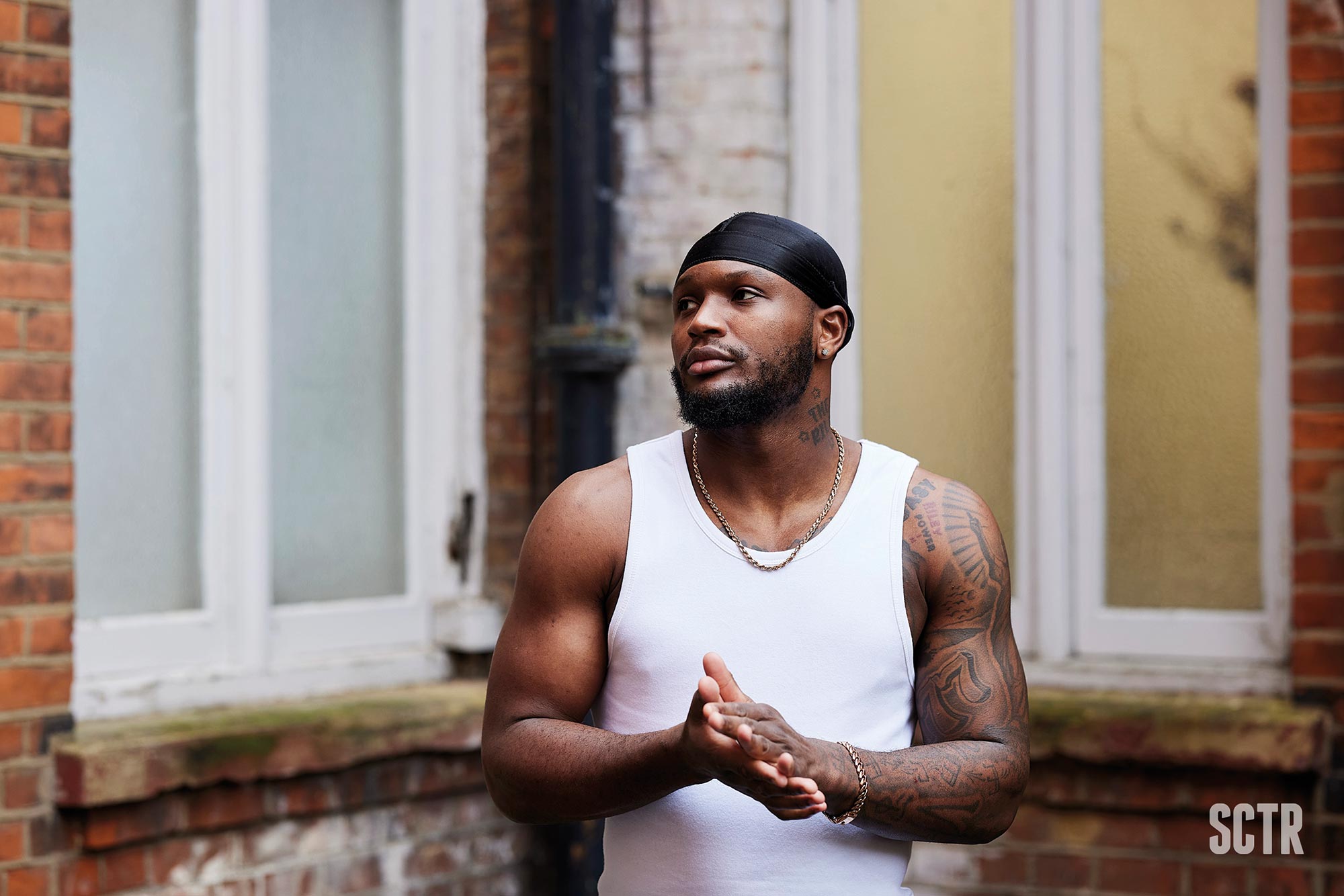
White vest by BDG
“Not a lot of people were getting offered contracts to turn to America and fight under Mayweather Promotions. I was 20 and I said, ‘You know what? Let’s do it.’”
“It would have been excellent short-lived to continue coaching but that would’ve been sacrificing becoming the fighter I aspired to be.
“I never wanted to be a coach in the first place, I enjoyed it and I got the most out of it but I had to let it go.”
Looking back, Riley travelled the world and was involved in the huge pay-per-view fights while only 21-years-old.
“Only as the years have passed do I give myself a little pat on the back to think, ‘You know what? You were 21 doing things that people a lot older crumble under the pressure and responsibility.’
“To be 21 and known to the world, be on these big platforms speaking well and coaching well, I was proud I made that decision because it did change my life.
“I do give myself some credit now and then but usually I’m thinking about the future.”
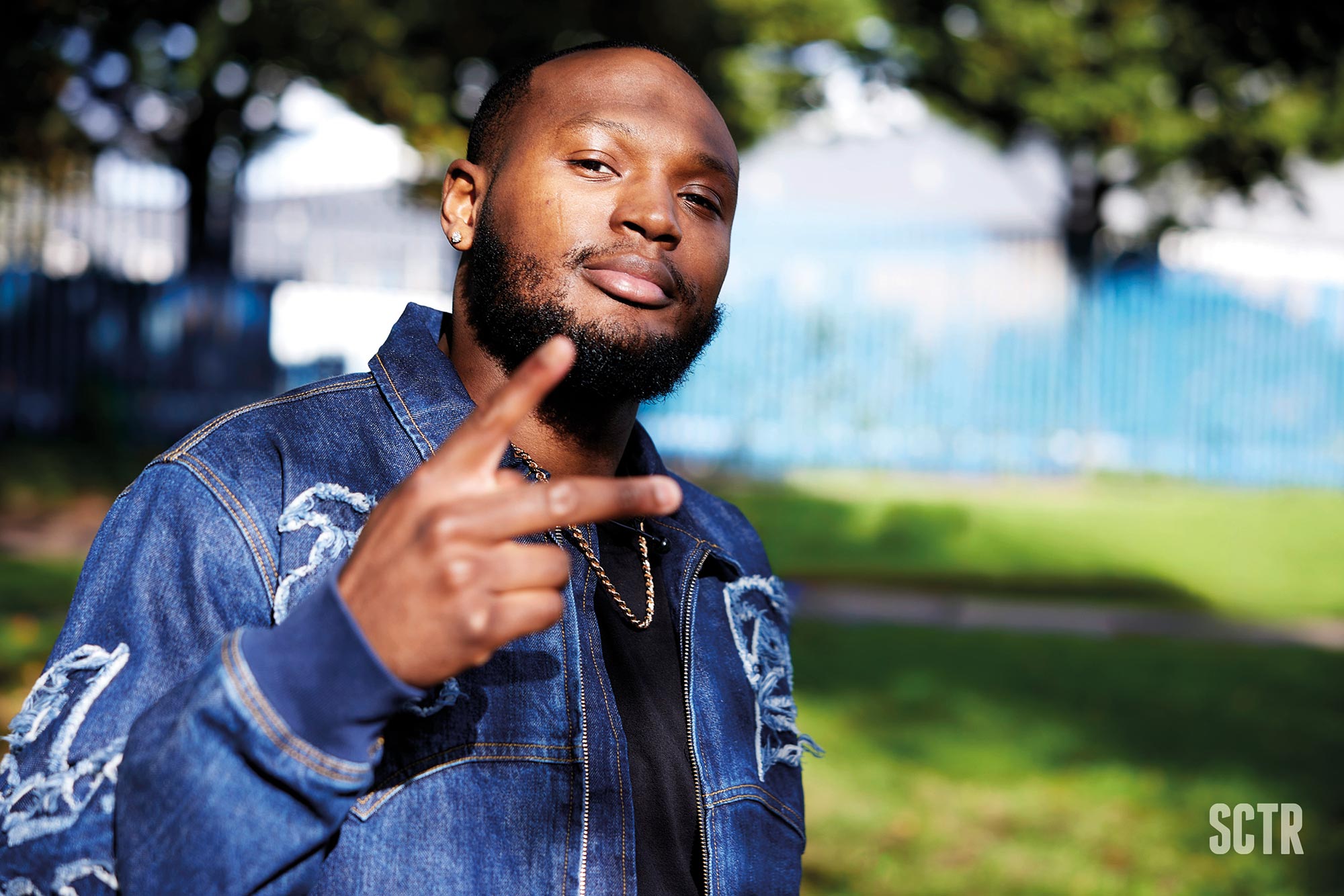
Jacket by Palace T-shirt by Edwin
Riley would return back home and sign with Sky Sports and promotional company Boxxer. And more importantly, it allowed him the chance to reunite with his dad and trainer Derrick.
“When I moved back to the UK, I said to him, ‘I need you to be my coach so we can complete this journey.’
“Since then I’ve definitely improved a lot as a fighter.”
Riley, still only 26, is now 10-0 and has the British title in his sights after capturing the English belt.
But he has shown to have as much versatility outside the ring as he does inside it.
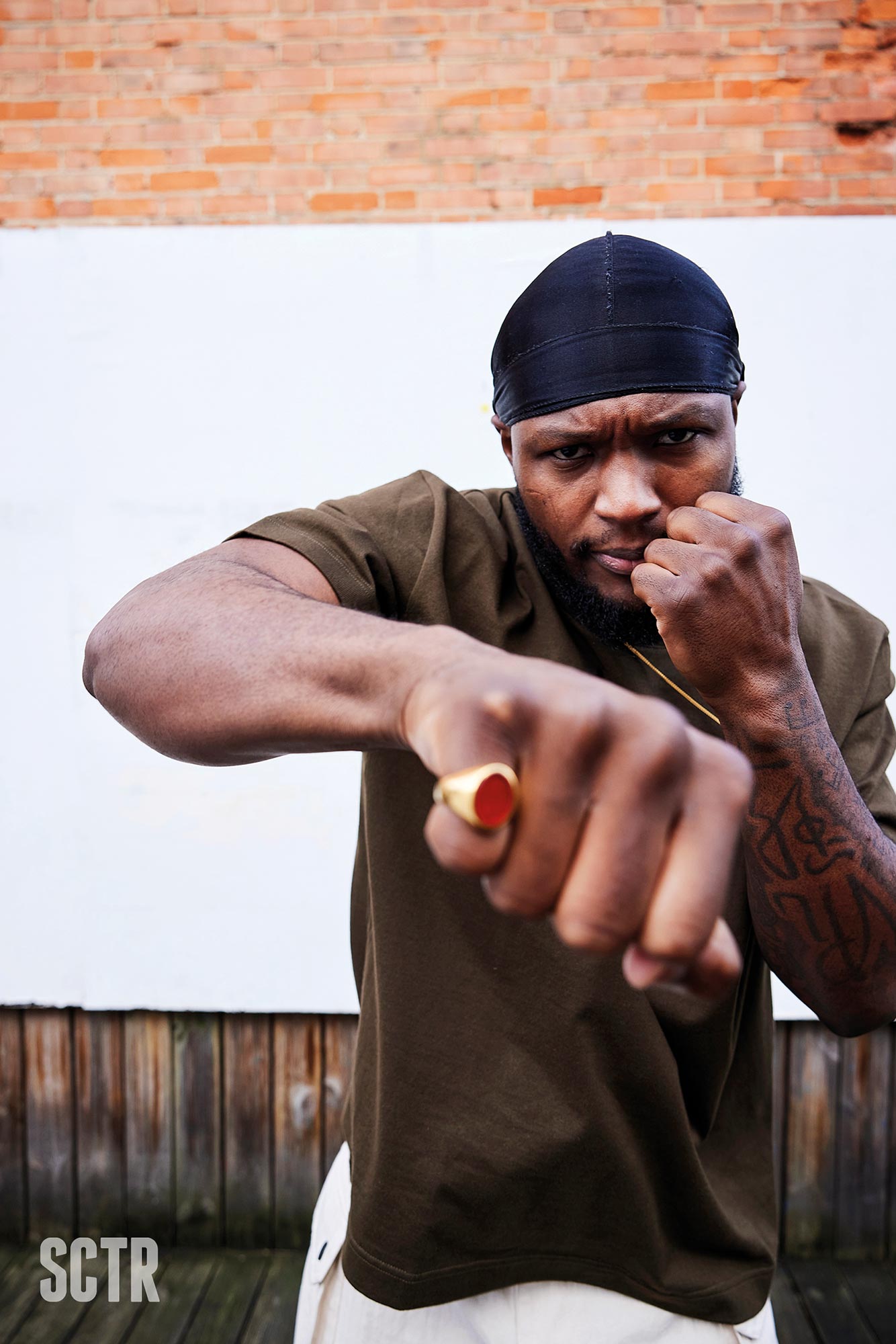
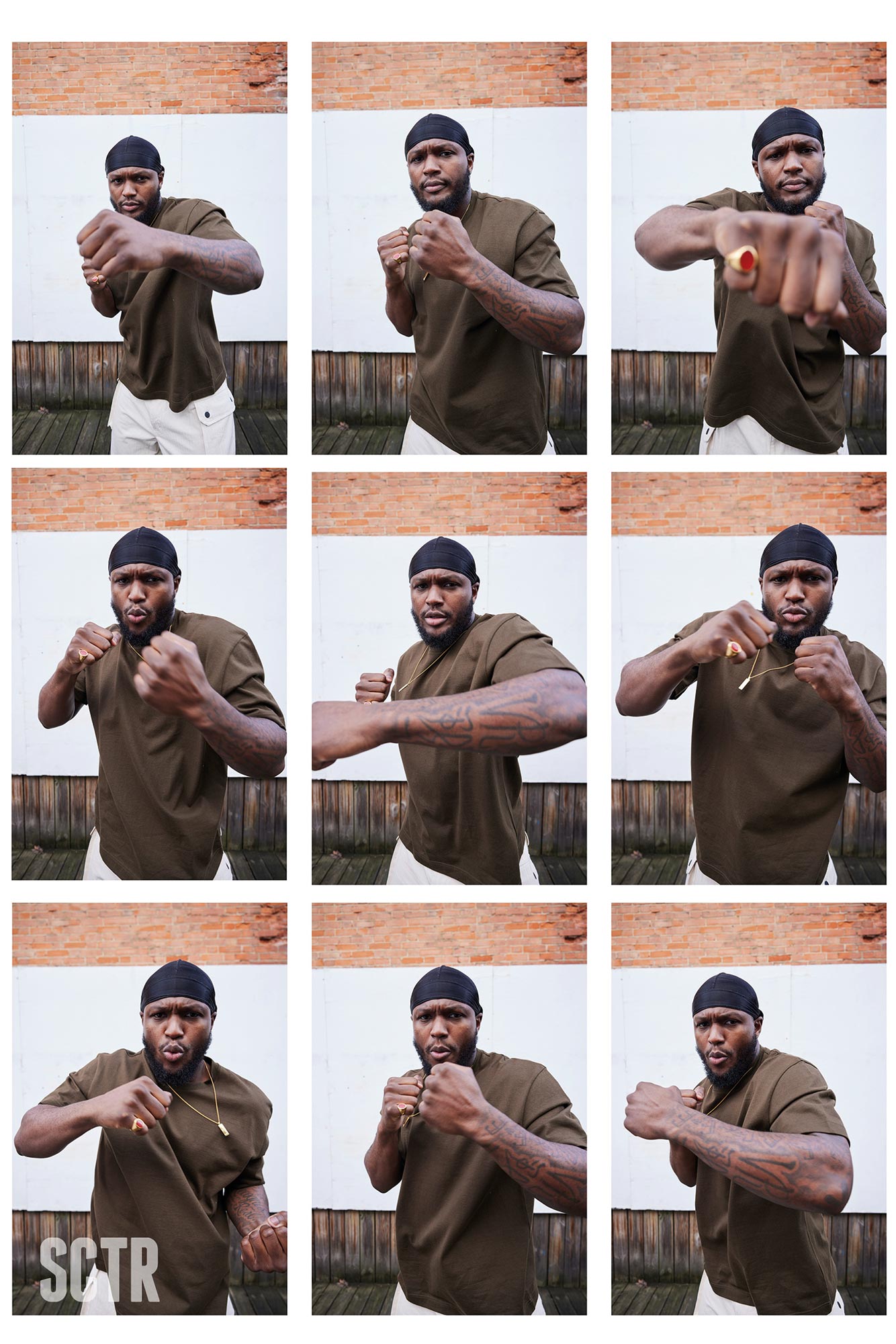
T-shirt by Arket
“I do give myself some credit now and then but usually I’m thinking about the future.”
The undefeated champion has released his own music tracks, runs a YouTube account with over a million subscribers and hosts a podcast with one of his trainers Leon Wills.
Riley hopes it will inspire the younger pack of upcoming boxers to broaden their horizons when it comes to self-promotion and marketing.
“Boxing is a career that can end in literally the blink of an eye,” he says.
“So you do need to have other avenues and be smart and grow your brand and be someone that people want to follow.
“Boxing as a sport can be boring, it’s a big backdated in a way that it’s like if you’re a boxer all you’re allowed to do is wake up, eat your meal prep, go to the gym and go sleep.
“I’m transparent enough and confident enough to have my interests and show it to the world that yeah, these are the other things that I do as well.
“We’re not robots, we’re not machines. We have other things we care about. There’s a large stigma that you can’t do those other things and still be successful as a boxer.”
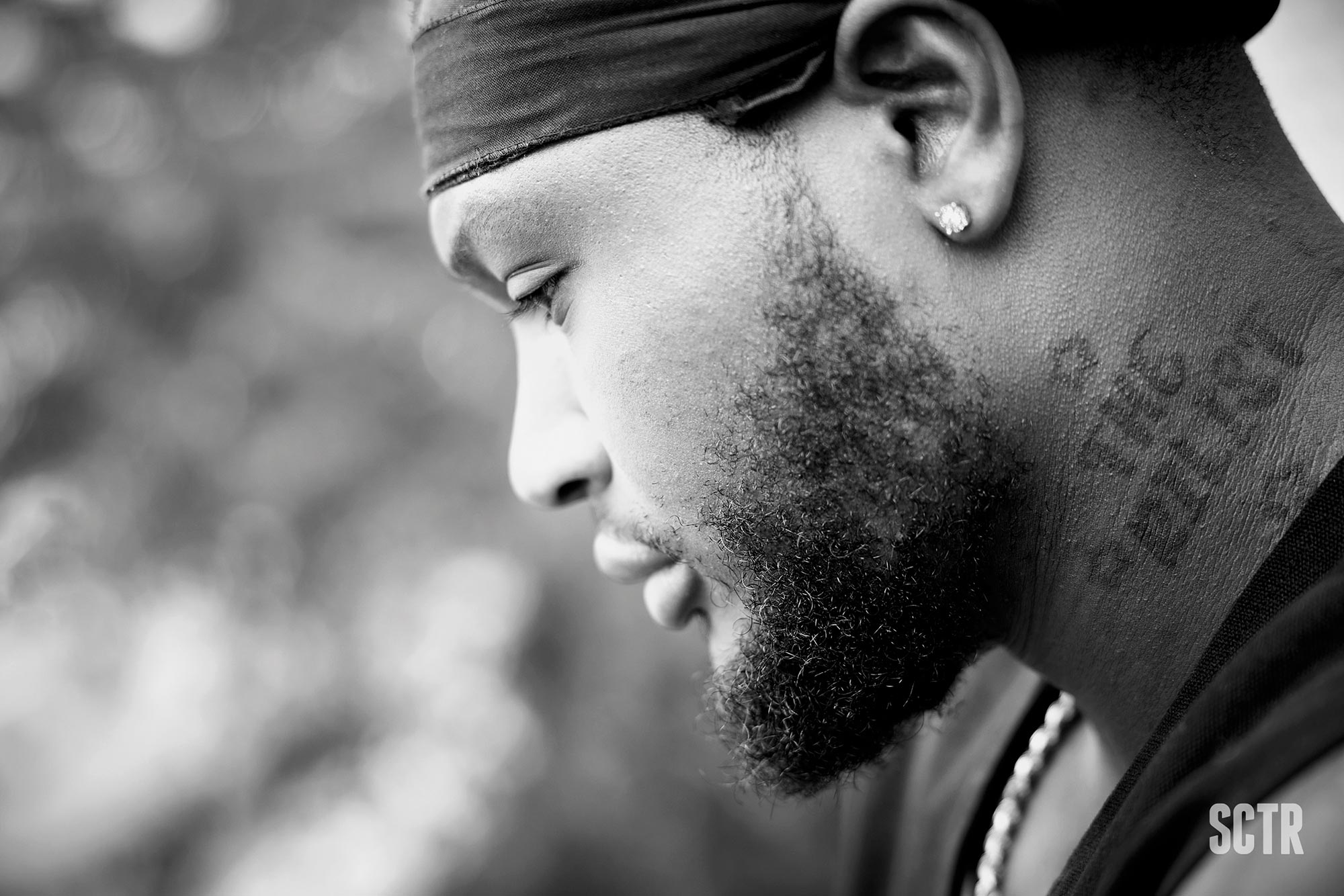
Vest by SCRT
“Boxing is a career that can end in literally the blink of an eye,"
Riley’s career took a further boost this year when he signed a management deal with Anthony Joshua’s 258 stable.
It means he has been guided by two of boxing’s greatest ever stars.
“It sounds a bit crazy!” he admits.
“Two of the biggest boxers of this generation, Floyd and then AJ, how can I deny that I’m clearly on the path to doing something special. These are not people that would attach themselves to anybody.
“I’ve got to make the most of it, it sounds good to say but it means nothing unless you capitalise on it and make the most of it. That keeps me hungry and motivated.”
Riley has been destined to reach the pinnacle of the sport ever since first lacing up the gloves – and he hopes to hold a world championship by his 30th birthday.
“I think by 28, turning 29 I should be world champion. I always said to myself I’ll be world champion before I was 30-years-old.
“I’m on track to doing that. For me that’s the absolute latest being world champion at 30-years-old.”
